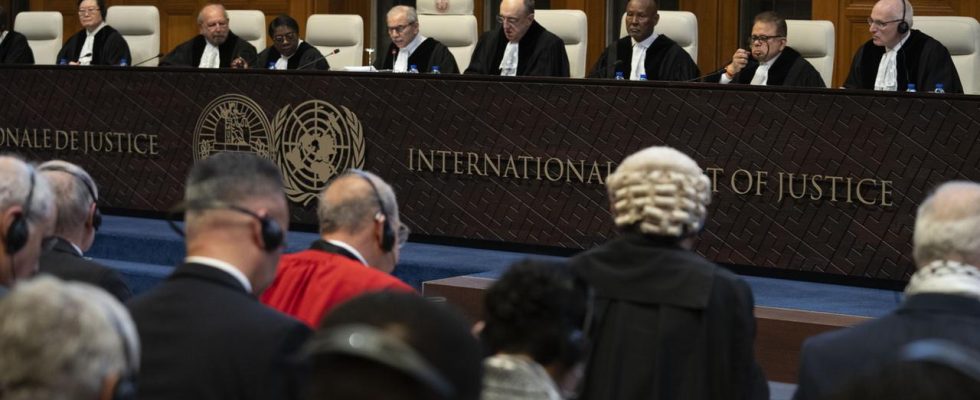Does Israel’s occupation policy violate international law or not? The International Court of Justice is dealing with this question. Israel itself firmly rejects the accusation of genocide.
Hearings on the legality of almost 60 years of Israeli occupation of the Palestinian territories have begun at the International Court of Justice in The Hague. The Palestinian Foreign Minister Riad Al Malki spoke at the start.
He accused Israel of pursuing “a policy of apartheid and colonialism” in the occupied territories. “More than 3.5 million Palestinians in the West Bank, including Jerusalem, face the colonization of their territory and the racist violence that enables it.”
The right of peoples to self-determination is enshrined in the UN Charter. However, this has been withheld from the Palestinians for decades. The Palestinians argue that Israel has violated this by annexing occupied territories on a large scale.
“This occupation is annexation,” al-Malki said. He spoke of a deliberate, cynical perversion of international law. The only solution is an immediate and unconditional end to the Israeli occupation of Palestinian territories.
Israel and the Palestinians
Israel was founded on May 14, 1948 with the mandate of the United Nations (UN) as a Jewish state in the then British mandated territory of Palestine. The UN partition plan provided for separate settlement areas for Jews and the Arabic-speaking residents of Palestine in the area. On the same day, Egypt, Jordan, Lebanon, Syria and Iraq attacked the new state. Israel won the war. As a result, hundreds of thousands of people fled Israel or were expelled from there. At the same time, almost as many Jews had to flee Arab countries.
Since then, there have been numerous peace efforts along with other wars. In the Oslo Treaties In 1993, Israelis and Palestinians initially agreed on peaceful coexistence and mutual recognition, including Israel’s right to exist. In an interim phase, the Palestinians should administer the Gaza Strip and the West Bank themselves while Israel withdraws from the areas. The aim was to prepare a step-by-step process Two-state solution. Despite many efforts, the agreement was not implemented. There have been no serious negotiations between Israel and the Palestinians since 2014.
Israel calls hearing an “abuse”
Israel itself is staying away from the hearings. However, in a written statement published through the court, the country rejected the hearing as an “abuse of international law”.
Accordingly, Israel has “the right and duty to protect its citizens” and points to the ongoing danger to its citizens from Palestinian terrorists. According to the court, Israel’s statement was made in July 2023, before Hamas’ terrorist act on October 7th.
U.N-general assembly has requested reports
The hearings are not about the current Gaza war, but about the fundamental question of whether Israel’s occupation policy is legal or violates international law. The UN General Assembly called for an ICJ report on this in December 2022. Although it is not binding, it can further increase international pressure on Israel in the current war.
Representatives from around 50 countries and organizations will take a stand for six days. The judges are expected to take several months before issuing an opinion.
In addition to Israel, Germany is also refraining from participating in the process. Like Israel and the USA as well as 23 other states, it voted against the General Assembly resolution at the time.
Palestinians demand independent state
Israel conquered the West Bank and East Jerusalem in 1967. Today, around 700,000 Israeli settlers live there among three million Palestinians. The Palestinians claim the territories for an independent state with East Jerusalem as its capital.
The United Nations granted Palestine observer state status in 2012. Of the 193 UN member states, 139 have so far recognized Palestine as an independent state.

